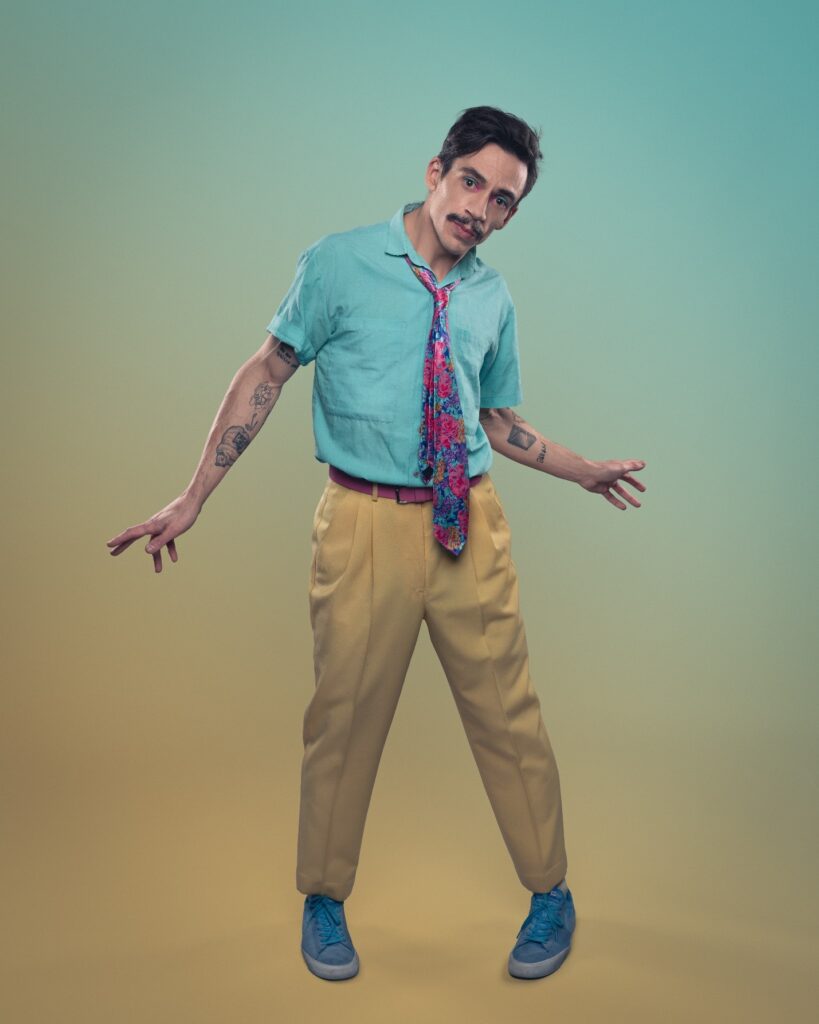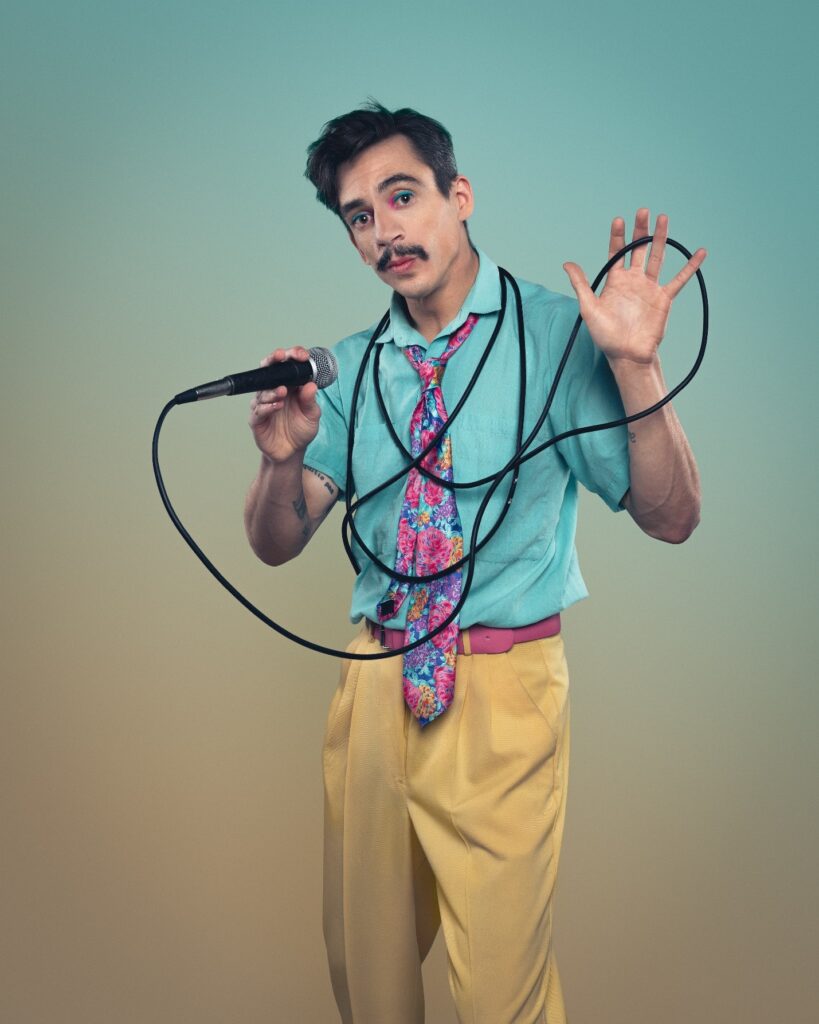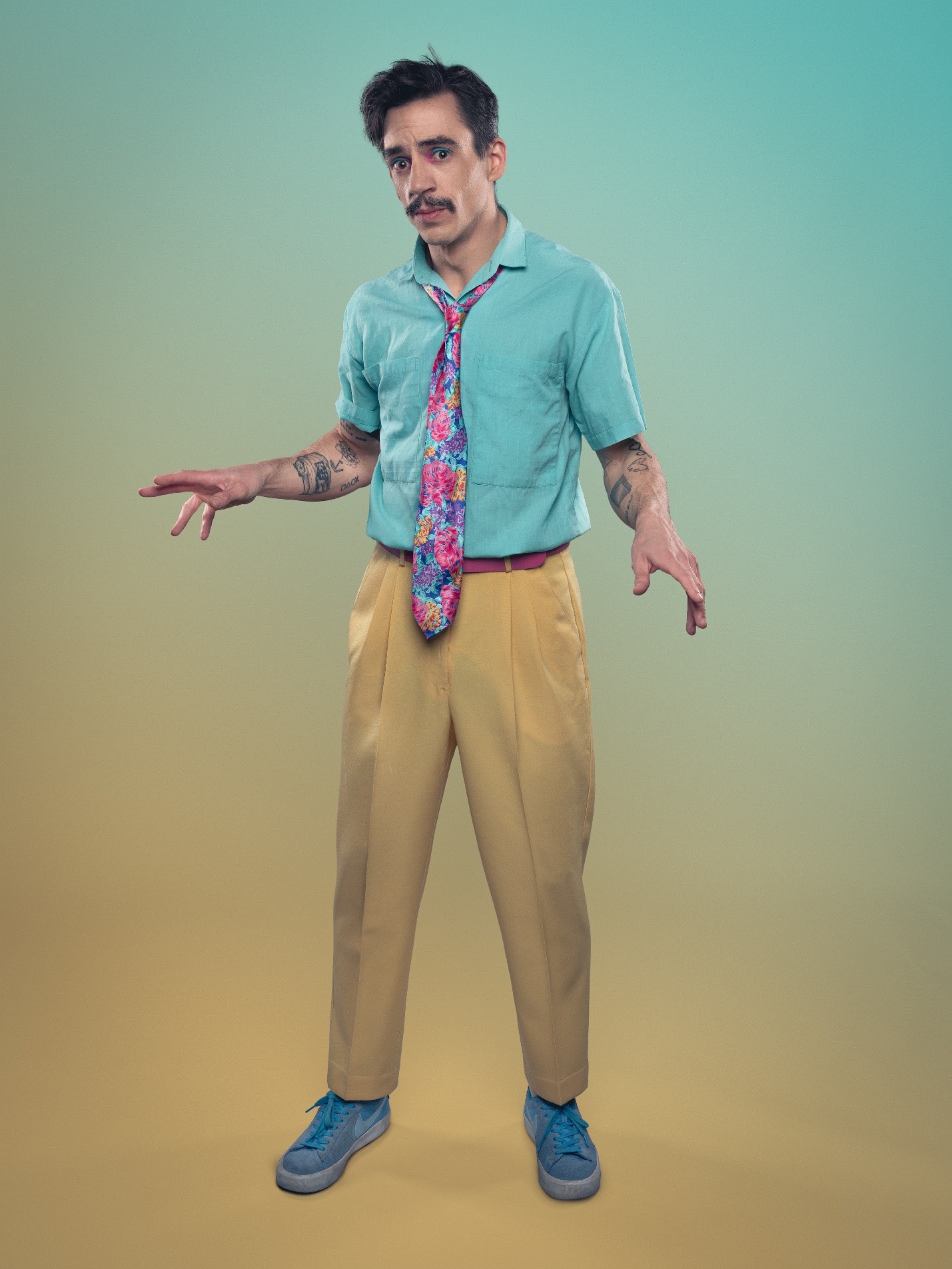R. F. Coleman just released the music video for “I Couldn’t Trust” today, September 28. The TV show “Neighbours” director Jonathan Dutton directed it. He wrote, produced, and played seven of the characters. Renowned director of photography Chas Mackinnon shot it. Joshua Moriarty (of Miami Horror and Telenova) and Scott Horscroft (who produced Silverchair, DMA’s, Empire of the Sun, The Presets, and more!) collaborated on the writing and co-production of his debut single, “I Couldn’t Trust.”
The song’s companion video also describes R. F. Coleman’s transformation from a wild man who had been shot, stabbed, and cyanide poisoned to a sober artist. (528 days sober as of the writing of this).
Although he’s never been a musician before, he’s done a lot of strange and wild things in the past. He’s written for the New York Times, VICE, and Guardian, directed award-winning videos, covered the Thai coup, and even pulled off a hit on himself after making friends with a gangster in a military-run cocaine bar. Check out the song and the exclusive interview below:

1. Can you tell us a bit about where you come from and how it all got started?
R. F. COLEMAN: To be honest, this project came out of the blue. Josh, my producer – from Miami Horror and Telenova – just handed me a mic in his studio, didn’t give me a listen to the tune and I started freestyling. We then wrote 60-something songs and have 16 we’re ready to release.
2. Did you have any formal training or are you self-taught?
R. F. COLEMAN: My background as an artist is in writing and film. I’ve written books, features for NYTimes, done crazy interviews and even put a hit out on myself for a story. But I’m not a musician, well, definitely not a formally trained one. Like all my art – photography, painting, filmmaking – I just do what I feel. It’s fun. But it makes it hard to explain what genre of music I make!
3. Who were your first and strongest musical influences and why the name ‘R. F. COLEMAN’?
R. F. COLEMAN: This probably isn’t ‘cool’, but I love listening to music from Death Cab for Cutie and Snow Patrol. In terms of influence, I get introduced to new things all the time. I was very late to the Radiohead party, but I love them. Josh, my producer, recently starting playing me Supergrass and Elliot Smith – I liked them both!
Good question about the name. I chose R. F. Coleman because, well, they’re my initials, but also it was a break from my previous ‘artist’ names. I used to write under Robert Francis Coleman, or Robert F. Coleman; I’ve made art and published imagery using the name Robbie Coleman; and I’ve had stage names for all the bands I’ve been in. But none of those people are me. R. F. Coleman is closest to me as I’ve ever been. I’m old. I don’t care anymore. I want to be happy, healthy, there for my family instead of taking drugs every day. It’s when I went sober that Josh invited me over and we started making this music. Me, as R. F. Coleman, has never been happier.
4. What do you feel are the key elements in your music that should resonate with listeners, and how would you personally describe your sound?
R. F. COLEMAN: Answering the question, ‘what kind of music do you make’ is hard. “I Couldn’t Trust” – the debut song – has fun elements like reversed guitars and very literal lyrics. I don’t usually like literal lyrics, which sounds stupid given I liked Snow Patrol and all their lyrics are just old white dudes (like me) giving it all that about love or life like they have some interesting perspective on it. So, I promise, like “Crazy For You”, none of my music will ever have some earnest message behind it. And that’s what I like about “Crazy For You”. When I sung the chorus Josh and I just started laughing. And we popped in some fun and weird sounds and just thought: this is absolutely stupid. We love it! So, in terms of how to describe my sound, your guess is as good as mine. The next few songs coming out are totally different. One sounds like a bunch of kids tried to make an MGMT song (not cover their literal song, Kids), another is a queer-sounding ode to The Presets (I actually love them, now that I think about it) and another makes absolutely no sense. It changes key, tempo, vibe, style many times. But it works! So, I guess the R. F. sound is: whatever I’m feeling that day!

5. For most artists, originality is first preceded by a phase of learning and, often, emulating others. What was this like for you? How would you describe your own development as an artist and music maker, and the transition towards your own style, which is known as INDIE?
R. F. COLEMAN:
Ask my Mum, I was never creative at school. No interest in reading, listening to music, watching films. It was only when I hit my 20s I started writing, drawing, performing, exploring my creative side. It’s awesome, because everything is new. I have kids now, and Josh will send me an artist to listen to. Sometimes they’re contemporary ones, like Baxter Dury, but other times they’re it’s stuff like Lou Reed. And hand to heart, I’d never heard (Googling the name of the album right now) “Transformer” until a year ago. And it’s cool, because my kids are now discovering music with me. So for me, I’m always learning. And I think the style of my music – and art – will always change. As I take more in. With every new song I hear, painting I see, creative film I watch, more information and ideas come. And I am in no rush to discover everything, so hopefully I continue to be inspired all the time.
6. What’s your view on the role and function of music as political, cultural, spiritual, and/or social vehicles – and do you try and affront any of these themes in your work, or are you purely interested in music as an expression of technical artistry, personal narrative, and entertainment?
R. F. COLEMAN:
I respect any artist (person, really!) with a platform that wants to use that to voice their opinions or viewpoints; especially if they’re serving a greater good (again, bit subjective on what ‘good’ looks like for whom). Artists have always played a significant role in activism and creating change; and music is an especially powerful tool in that respect. But for me, I don’t feel that’s my place as an artist. Perhaps one day – as I mature as a person – but at the moment R. F. Coleman is, and being honest, about me sharing me. And I feel like the guy with the pink tie and silly lyrics can’t play that role yet. But like I said, as I mature, R. F. Coleman will mature, and that may change. And hello to anyone, artist or not, creating real, demonstrable change in the world; you’re awesome.
7. Do you feel that your music is giving you back just as much fulfillment as the amount of work you are putting into it or are you expecting something more, or different in the future?
R. F. COLEMAN:
Honestly, making music with Josh was a way to stay out of bars, casinos, drug-induced mayhem. Releasing it, and having people enjoy it, well, that’s – to borrow from my mother – ‘stunning’. I love making art and if it ever becomes possible to just be an artist, full-time, and have a healthy, happy family, then that would be – again borrowing from my mother – ‘absolutely, positively the dream’.
8. Could you describe your creative processes? How do usually start, and go about shaping ideas into a completed song? Do you usually start with a tune, a beat, or a narrative in your head? And do you collaborate with others in this process?
R. F. COLEMAN:
The creative process is still just like that first day. Josh hands me the mic and headphones, presses play on a some mystery musical borsht, and away I go. Most times I’ll have a couple of passes, a melody will appear, we sit down, listen and build out the rest of the instruments, sounds, texture, structure et al from there. It’s remarkable, as Josh has been a full-time professional musician for 20 years. And I have not. He keeps secrets from me, almost like he wants to keep me the naïve boy from the woods. Which keeps the ideas weird and fresh for him; but they’re just my ideas. I don’t know that it’s weird to reverse guitars, or to sing in a certain way, or to ‘mouth trumpet’ (hard to explain, but it appears on forthcoming “Always Attractive”) or to break out into a 7-min diatribe pretending I’m a news reporter from the 70s on a beach in Malta interviewing Jacques Cousteau and a German tourist about what they packed for lunch. There’s plenty of R. F. Coleman in this music, but there’d be no reason to listen to it without Josh. He always says he’s never worked with anyone like me; well, I’ve never met someone quite as brilliant as him (from any field). He’s truly clever.
9. What has been the most difficult thing you’ve had to endure in your life or music career so far?
R. F. COLEMAN: Life: not sure we have the time for the whole tapestry. In terms of music, the hardest thing I’ve had to overcome is making the decision to remain independent – whether or not that’s viable and sustainable long-term is another thing. But for the time being, I’m fortunate to have had very few tough moments in music. Life, well, no one needs to hear about my shit.
10. On the contrary, what would you consider a successful, proud or significant point in your life or music career so far?
R. F. COLEMAN: Scott Horscroft – who produced bands like Silverchair, DMA’s, Empire of the Sun and The Presets – wanting to work with me was extremely humbling. Scott and Josh co-produced “I Couldn’t Trust” and a few other songs coming out sometime in the next whenever, and it was an amazing experience spending five days at his studio in the forest. The proudest moment though: having my kids tell me I’m their favorite musician. Corny, but that’s my honest answer.
11. With social media having a heavy impact on our lives and the music business in general, how do you handle criticism, haters, and/or naysayers in general? Is it something you pay attention to, or simply ignore?
R. F. COLEMAN: The internet is just one giant nightclub toilet. You meet some cool people. Otherwise will piss on you. Words on the wall may offend you, others may inspire you, but you don’t live in the nightclub toilet. Get the numbers of the cool people you met, make new friends and let the rest stay where it is. But, hello reader, if we meet in a nightclub toilet, please be nice. And I’m ok for ketamine, thanks for the offer though.
12. Creative work in a studio or home environment, or interaction with a live audience? Which of these two options excites you most, and why?
R. F. COLEMAN: Josh has become one of my closest friends, so working from his home-studio setup is great. But there’s nothing quite like performing live. Particularly when it’s a crowd not there to see you, but the crust-punk band you’re for some reason opening for, and they come up and give you a pat on your sweaty back after the show. That’s right up there.
13. Do you think is it important for fans of your music to understand the real story and message driving each of your songs, or do you think everyone should be free to interpret your songs in their own personal way?
R. F. COLEMAN: Once the song has been released, it’s no longer mine to control. My honest hope is that everyone hears, sees, thinks, feels something different – if that happens, then I’ve made something truly distinct. I don’t reckon that’s happened yet, but one day, I hope there’s a room full of people there to hear the same song, from the same guy, at the same time, and go home all feeling something entirely different. Now that – and I’ll borrow from my mum one last time – would be ‘delicious’.
KEEP IN TOUCH:
INSTAGRAM | SPOTIFY | BANDCAMP | TIKTOK | WEBSITE | YOUTUBE

Photo credits: Chris Hillary

